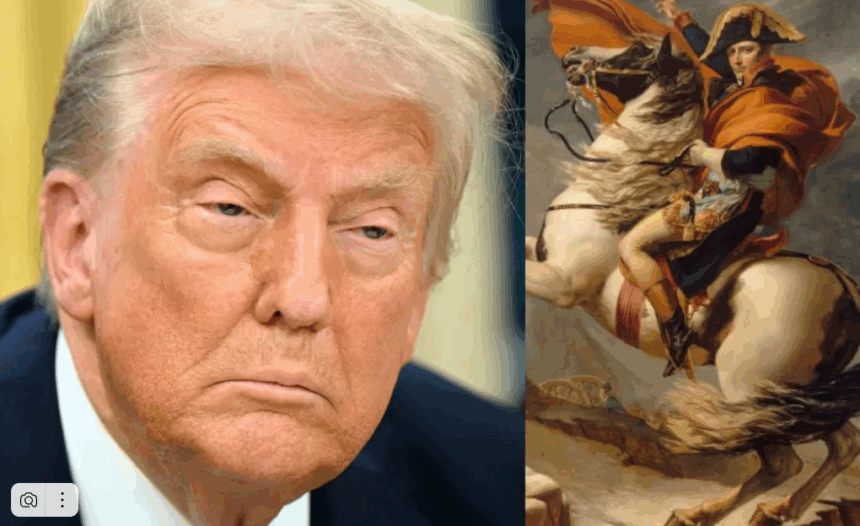Summary & Additional Remarks by Geopolist | Istanbul Center for Geopolitics:
Donald Trump’s return to the presidency in 2025 has upended one of the few points of bipartisan agreement in U.S. foreign policy over the last decade: the belief that America is locked in a new era of great-power competition. From Trump’s own 2017 National Security Strategy to Biden’s 2022 version, both administrations agreed that China and Russia posed fundamental challenges to U.S. power and global order. Scholars and policymakers alike rallied around the concept. Analysts like Hal Brands and Michael Beckley described this new age as a “danger zone,” while others turned to classical realist theories—like those of John Mearsheimer—to argue that rivalry among great powers was not only inevitable but essential to maintaining U.S. primacy.
But Trump’s second term is rewriting that script, and fast. Rather than continuing the competition, Trump is now extending an open hand to America’s traditional rivals. He has talked of sitting down “man to man” with Xi Jinping to make a deal, praised Vladimir Putin as a strong leader, and expressed a willingness to end the war in Ukraine on terms favorable to Moscow—even if it means humiliating Kyiv. What we’re witnessing is less the continuation of great-power competition than its inversion: Trump is constructing a world of great-power collusion. It’s not that he’s abandoned power politics—far from it. But he’s now operating on the belief that the best way to manage a dangerous world isn’t through rivalry, but through elite cooperation among autocrats.
This vision harks back to the 19th century and the Concert of Europe—a loose arrangement among Europe’s major powers after the Napoleonic Wars to prevent future chaos by carving the world into spheres of influence and suppressing revolutionary movements. As the historian Mark Mazower notes, it was never a liberal system; it was about stability, not freedom. Trump’s foreign policy increasingly resembles this model. He seems to believe that strongmen like himself, Xi, and Putin can strike deals to manage global affairs, each ruling over their respective zones of influence with minimal interference. Ukraine is Russia’s to control. Taiwan might be China’s. And the U.S., in this vision, can do as it pleases in its own hemisphere—even pressuring allies like Canada or fantasizing about acquiring Greenland or the Panama Canal.
But this kind of power-sharing is far riskier today than it was in 1815. For one, the world is far more connected. Global supply chains, financial systems, pandemics, and climate change don’t respect national borders or ideological alignments. And unlike in the 19th century, today’s so-called middle powers—countries like India, Japan, Brazil, and Germany—aren’t passive players. They have their own agendas, their own ambitions, and little interest in being dictated to by a handful of autocratic great powers. A system that pretends they don’t matter is unlikely to hold for long.
There are also deeper contradictions within Trump’s concert vision. It assumes that the world’s most powerful autocrats will be satisfied sharing the stage. But history doesn’t offer much comfort on that front. Even during the Concert of Europe, tensions among the major powers eventually tore the system apart. Austria and Prussia clashed over German unification, France and Britain competed for colonial dominance, and the whole order collapsed in the lead-up to World War I. Paul Schroeder, one of the great historians of that period, warned that no concert can survive indefinitely without a shared set of norms and a deep commitment to compromise—two things clearly missing from the current moment.
And then there’s Trump himself. He may like to imagine he’s playing the role of Bismarck—smart, strategic, always one step ahead—but the comparison doesn’t hold up. Bismarck was a master manipulator of the European system, often acting with restraint to maintain balance. Trump, on the other hand, is impulsive, transactional, and driven by instinct more than strategy. A better historical analogy might be Napoleon III: erratic, vain, and ultimately played by those around him. Already, Putin and Xi seem to understand how to flatter Trump into making concessions. Trump might think he’s cutting savvy deals; in reality, he may be giving away the store.
This is not to say that cooperation between great powers is inherently bad. On the contrary, the Cold War showed that even rivals can find ways to collaborate on arms control and crisis management. But such cooperation worked only when it was embedded in structures, institutions, and long-term thinking. What Trump is proposing is something much thinner: an informal, personality-driven alliance among autocrats, brokered through bravado and backchannels. That’s not a concert—it’s a cabal.
The real danger is that Trump’s vision could lull the world into a false sense of order. Like the original Concert of Europe, it may hold just long enough to delay conflict—only to collapse spectacularly when the underlying tensions become too great to contain. In the meantime, smaller states like Ukraine, Taiwan, and others may be forced to watch from the sidelines as their futures are negotiated behind closed doors. And America’s traditional allies, pushed away by Trump’s hostility, may begin to drift further from Washington’s orbit—seeking their own arrangements in a world that feels more uncertain by the day.
In the end, the story Trump is telling—of a world governed by tough men making deals to keep the peace—may seem seductive in its simplicity. But history has shown again and again that when strongmen try to carve up the globe, the consequences are rarely as stable as they hope. What begins as cooperation often ends in confrontation. And without real diplomacy, institutions, or shared purpose, Trump’s concert is more likely to repeat those mistakes than avoid them.
Read more here.







